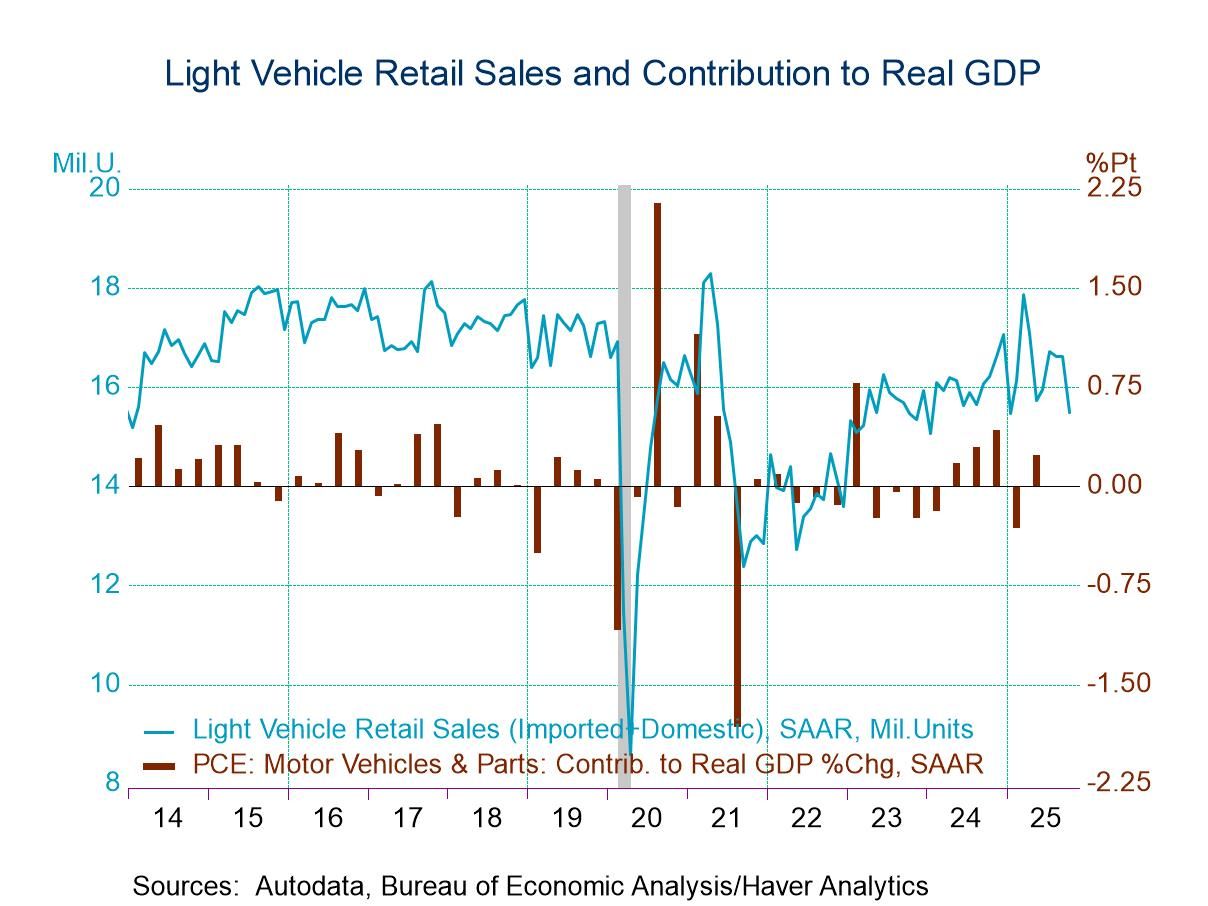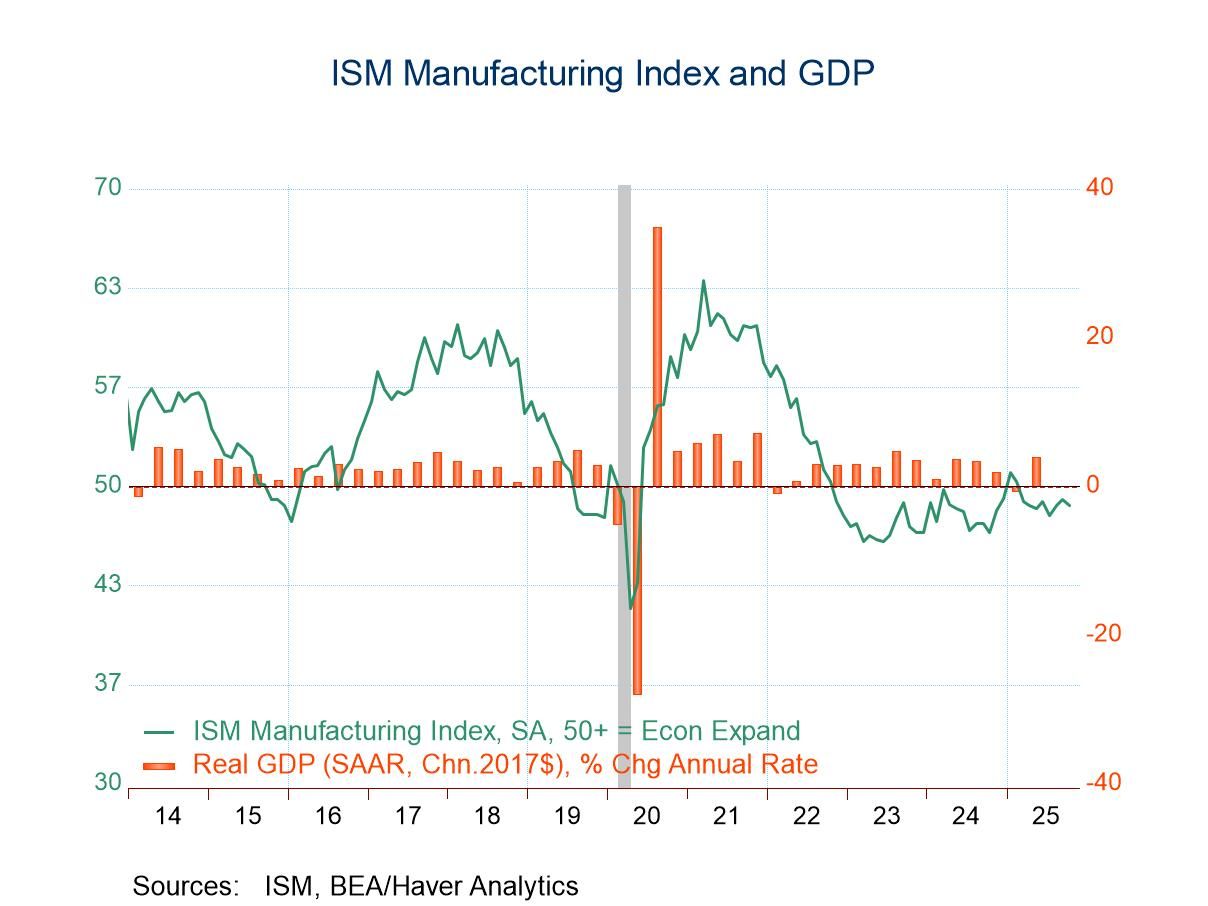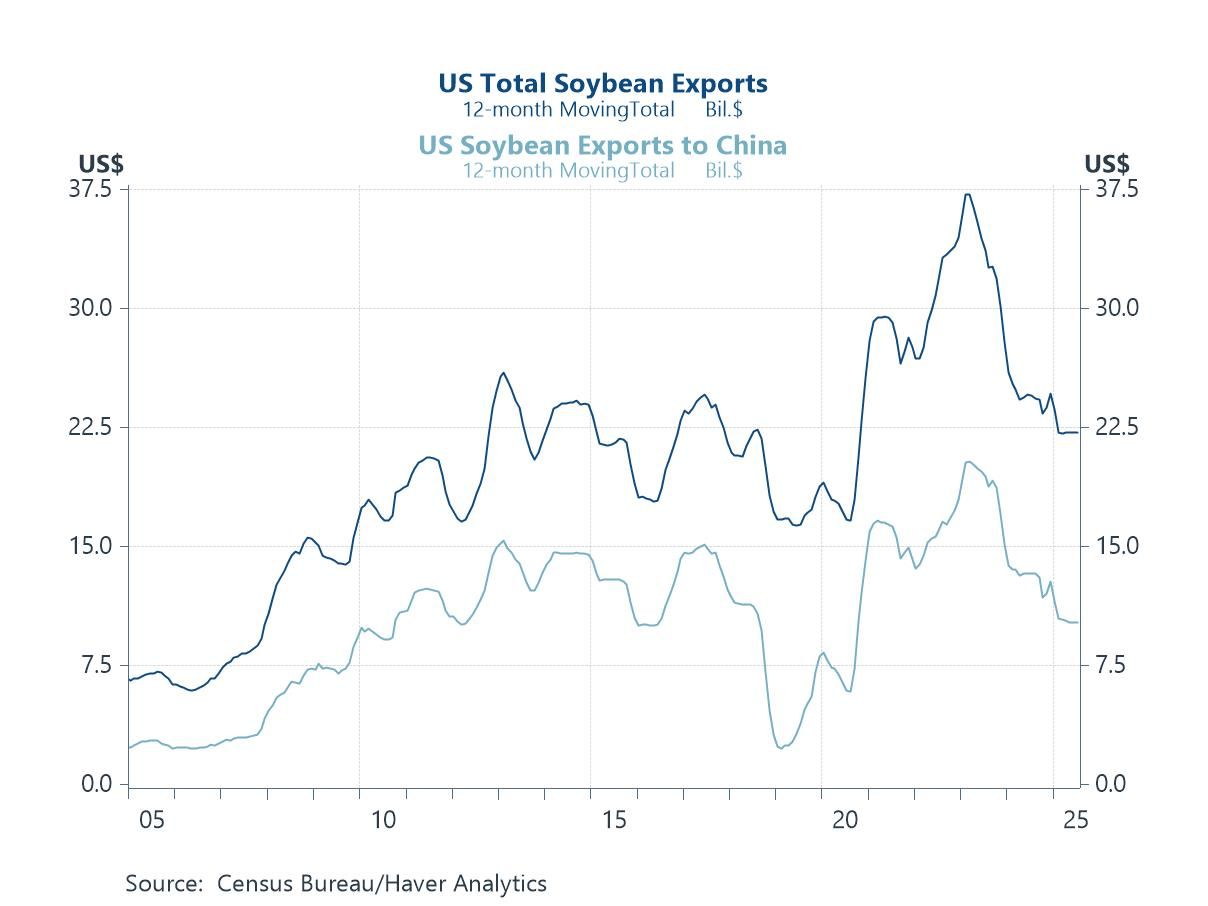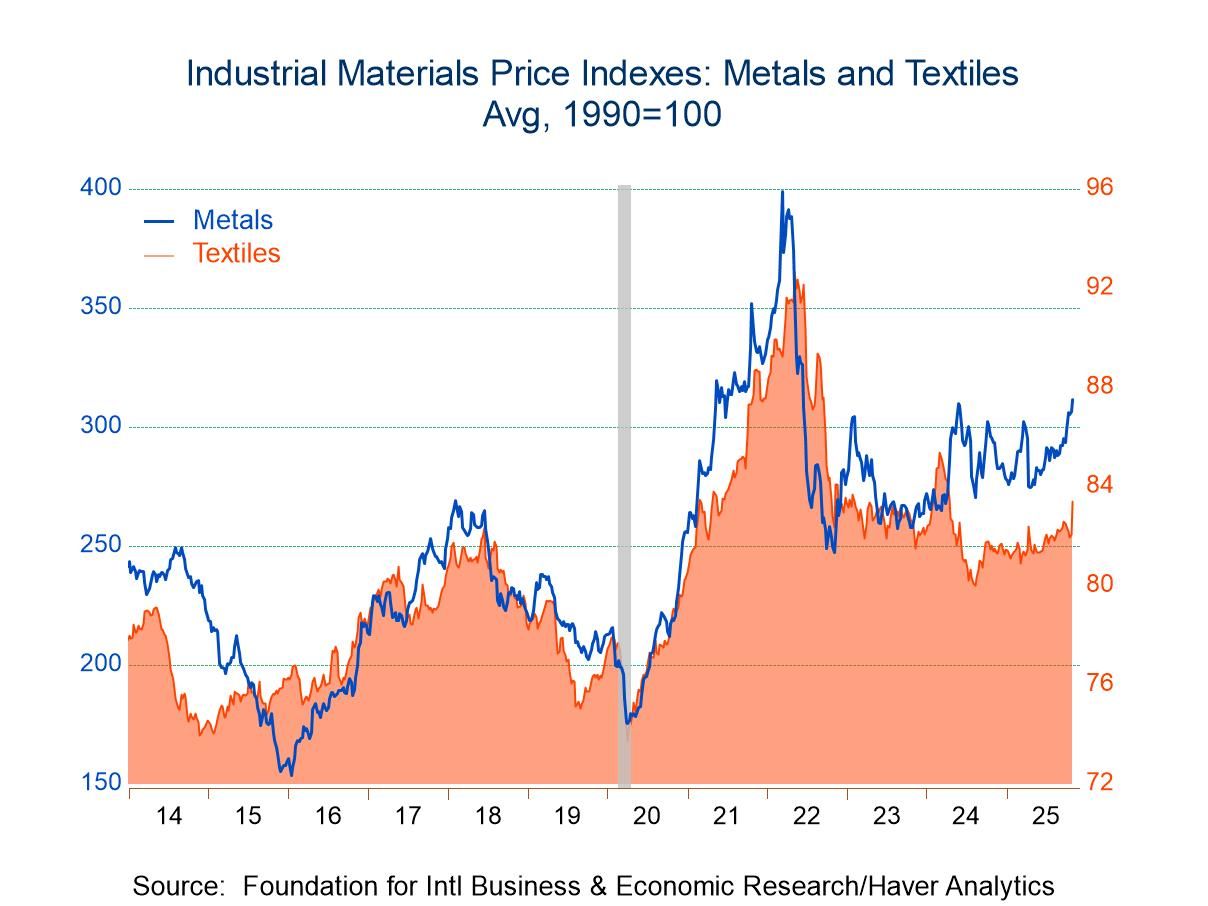 Global| Dec 04 2007
Global| Dec 04 2007U.S. Chain Store Sales Collapsed, But Did They?
by:Tom Moeller
|in:Economy in Brief
Summary
In the biggest weekly decline since 2006, chain store sales collapsed 2.0% w/w in the final period of this year, according to the International Council of Shopping Centers (ICSC)-UBS. The decline probably is not indicative, however, [...]
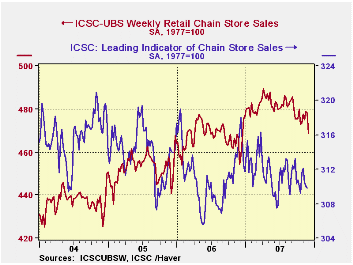
The ICSC-UBS retail chain-store sales index is constructed using the same-store sales (stores open for one year) reported by 78 stores of seven retailers: Dayton Hudson, Federated, Kmart, May, J.C. Penney, Sears and Wal-Mart.
The leading indicator of chain store sales from ICSC-UBS fell 0.1% (-1.6% y/y) for the third consecutive weekly decline. Market Bailouts and the "Fed Put" is last week's speech by William Poole, President of the Federal Reserve Bank of St. Louis and it is available here.What Do You Get for "Sixteen Tons"? is analysis from the Federal Reserve Bank of St. Louis of average hourly earnings and labor income. It can be found here.
| ICSC-UBS (SA, 1977=100) | 12/011/07 | 11/24/07 | Y/Y | 2006 | 2005 | 2004 |
|---|---|---|---|---|---|---|
| Total Weekly Chain Store Sales | 468.5 | 478.2 | 3.1% | 3.3% | 3.6% | 4.7% |
Tom Moeller
AuthorMore in Author Profile »Prior to joining Haver Analytics in 2000, Mr. Moeller worked as the Economist at Chancellor Capital Management from 1985 to 1999. There, he developed comprehensive economic forecasts and interpreted economic data for equity and fixed income portfolio managers. Also at Chancellor, Mr. Moeller worked as an equity analyst and was responsible for researching and rating companies in the economically sensitive automobile and housing industries for investment in Chancellor’s equity portfolio. Prior to joining Chancellor, Mr. Moeller was an Economist at Citibank from 1979 to 1984. He also analyzed pricing behavior in the metals industry for the Council on Wage and Price Stability in Washington, D.C. In 1999, Mr. Moeller received the award for most accurate forecast from the Forecasters' Club of New York. From 1990 to 1992 he was President of the New York Association for Business Economists. Mr. Moeller earned an M.B.A. in Finance from Fordham University, where he graduated in 1987. He holds a Bachelor of Arts in Economics from George Washington University.



